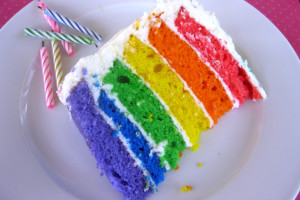Before I move on from the issue of gay-straight alliances, I’d like to address one misconception: that this was about a name. As if to suggest that had these support groups been called something else, the Catholic school boards wouldn’t have banned them.
This is one of the greatest untruths of this debacle. The objection was always with the notion that these clubs accepted queer youth as normal. The idea that it was about a name was merely the latest politically acceptable formulation of a much less palatable reality.
As the Ontario Catholic School Trustees Association said in a leaked memo:
From the outset, the concern [with gay-straight alliances] has been about the content more so than the name.
Don’t forget that students were also denied their petitions to start a group when the name was something else, such as “rainbow clubs.” It didn’t matter what they called it, the schools wouldn’t have allowed them.
The problem that the Catholic leadership has with these clubs is that they spread the idea that these kids are fine as-is. This is contrary to their beliefs, which views sexual minorities as morally evil*. To suggest otherwise is to disagree with their teachings, which is why there was accusations that the Accepting Schools Act would violate religious rights.
Despite their actions, the Catholic leadership never saw themselves as marginalizing anyone. There was a disconnect between their talk of embracing inclusivity and their gestures to the contrary. This resulted in self-contradicting quotes such as the following from a superintendent at the Bruce-Grey District Catholic School Board:
“No, I wouldn’t say we ban them. We support student clubs that support inclusiveness, especially for students who might otherwise feel marginalized. But all our clubs must, however, adhere to the Catholic teachings and values,” says [superintendent of education for the Bruce-Grey Catholic District School Board Gerald Casey]. Could students at a Bruce Grey Catholic school start a GSA? “The answer would be no,” admits Casey.
When you reject the validity of a population, it becomes possible to foster notions of inclusiveness that exclude entire swaths of people. A consequence of prejudice is that you are blind to the bias which you are exercising. That’s why I was unsurpised to see the opponents of the Accepting Schools Act at committee express their sentiment that homophobia** was, unlike other forms of prejudice, illegitimate.
Nevertheless, the religious leaders are sensitive to the fact that their views resonate with fewer and fewer Ontarians. Placing the blame on the name was merely a tool to obfuscate the nature of their opposition as to increase their odds of success.
That the name argument even worked at all, much less as well as it did, does highlight the comfort this society has with discrimination against particular subgroups. There is no doubt in my mind that had the vitriol thrown about by the opponents been less carefully directed, they would have triggered uproar from the public.
*If being gay was morally evil, being trans* was unspeakable. The guidelines issued by the Ontario Catholic School Trustee’s Association forbid students from even broaching the topic of gender identity in their official diversity clubs.
**The discussion was mostly focused on sexual orientation, I suspect, because the majority of opponents were too ignorant to know of anything else.
